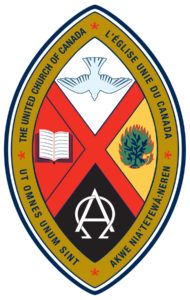Position description: Commissioners of the 44th General Council
Please click here for the PDF version of this document.
 As the voting members of a General Council, Commissioners serve an essential role in The United Church of Canada. Following the guidance of the Holy Spirit present in our gatherings, Commissioners set policy and take action on a wide-range of questions including those of doctrine, worship, governance, and public-witness. Commissioners elect the Moderator who will serve as the spiritual leader of the church until the next regular meeting. Being a Commissioner is a significant commitment of both time and energy. For most people, it is also an enriching and faith-deepening one.
As the voting members of a General Council, Commissioners serve an essential role in The United Church of Canada. Following the guidance of the Holy Spirit present in our gatherings, Commissioners set policy and take action on a wide-range of questions including those of doctrine, worship, governance, and public-witness. Commissioners elect the Moderator who will serve as the spiritual leader of the church until the next regular meeting. Being a Commissioner is a significant commitment of both time and energy. For most people, it is also an enriching and faith-deepening one.
Below please find a complete description for the three year term. Please note that the March 21 2021 General Council recall meeting decided that the 44th General Council will be held online only, in July 2022. If you live in an area with limited or no internet connection, or if you know of a good Commissioner candidate who does, please proceed with the application. Strategies and resources for ensuring that all Commissioners can participate with video are already under discussion.
-
Commissioners
- are voting members of the General Council as outlined in The Manual 2021 Section D.1.1
- serve for three years, starting at the beginning of the General Council triennial meeting for which they were elected/chosen and ending with the beginning of the next General Council triennial meeting
- make policy and governance decisions for the United Church as both a denomination and a legal corporation as outlined in The Manual, 2021, Section D.2
- an individual may become a commissioner in one of the following ways:
- each regional council elects a prescribed number of commissioners consisting of a balance of lay members and ministry personnel (204)
- by virtue of office, including the Leading Elder or presiding officer of each regional council
- 15 members as chosen by the National Indigenous Organization
- members of the Executive of the General Council who will be continuing to serve on the executive
- members elected by the Executive of the General Council
2. Expectations of Commissioners
The current process for dealing with business before the General Council triennial meeting involves three separate parts:
- Listening/Learning – webinars intended to impart information to commissioners on proposals;
- Discussions – commissioner small group discussions about proposals;
- Decision Making – Facilitation Group reports on the information collected from all the discussion sessions and makes recommendations for commissioners to consider and take action on.
It is important for commissioners to be aware of how their regional council feels about an issue that is coming before the General Council; however, a commissioner is not required to reflect the will of the regional council in how they vote on any issue. Commissioners must approach the business of the General Council with an open mind and heart and be willing to be moved by the Spirit as they hear and learn from others.
Working under this model, Commissioners are expected to prepare for and participate in the General Council triennial meeting, and other General Council meetings that take place during their term as follows:
1. Arrive at the General Council triennial meeting fully informed about the business before them, having:
- Participated in/watched the Listening/Learning sessions
- Participated in all Discussion sessions about proposals
- Read all background material provided
Note that the Listening/Learning and Discussion sessions may take place up to 12 months prior to the start of the meeting
2. During the General Council triennial meeting, attend and participate in all Decision-making sessions
3. For the duration of the three year term:
-
- Prepare for and participate in the Annual Meeting of the General Council (currently a virtual meeting held in the fall)
- Prepare for and participate in any special meetings of the General Council that may be called
- Report on meetings of the General Council to communities of faith and clusters within the regional council, and to the regional council, as may be required by the regional council.
Expenses incurred as part of attendance at in-person meetings will be covered within policy limits.




